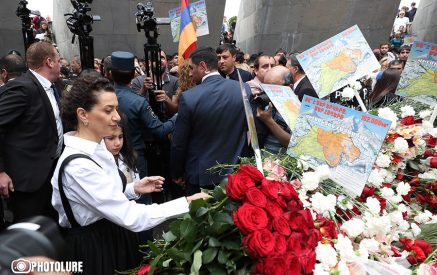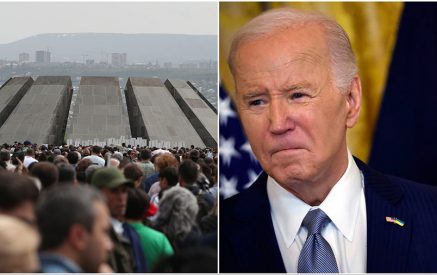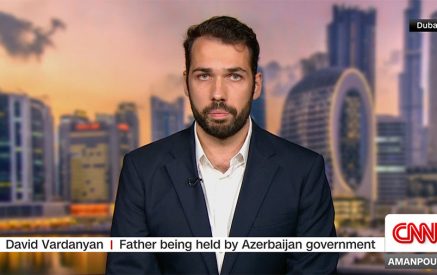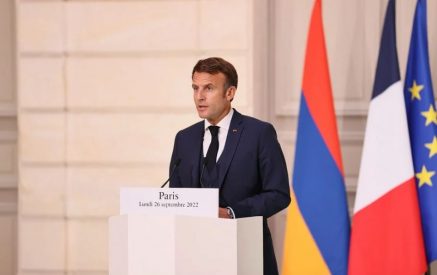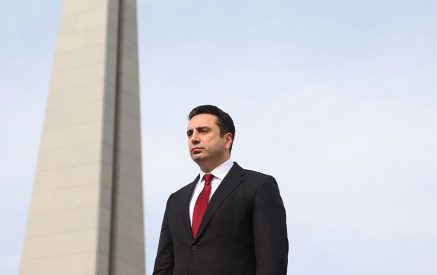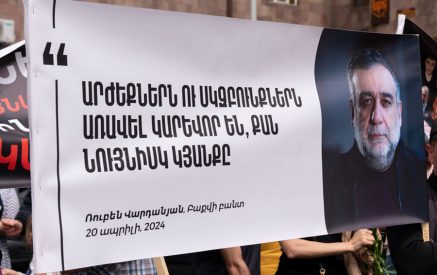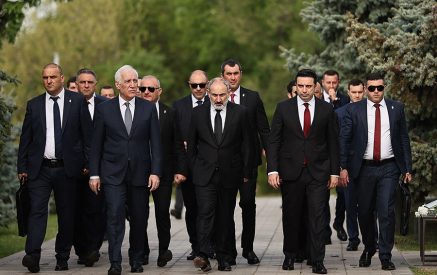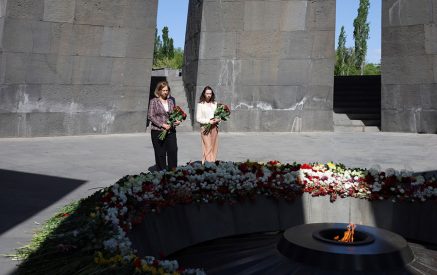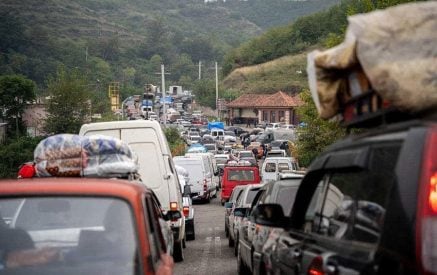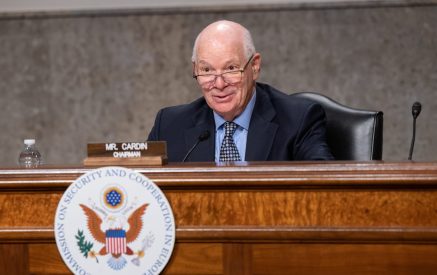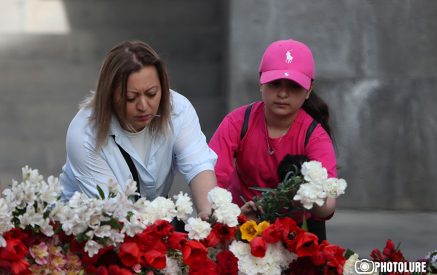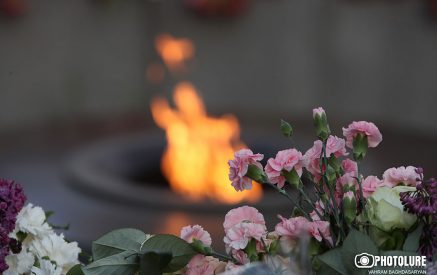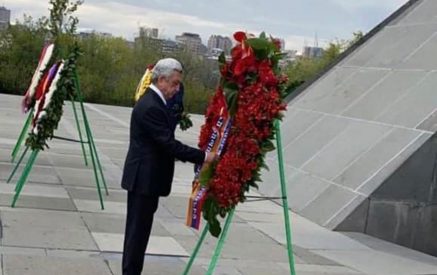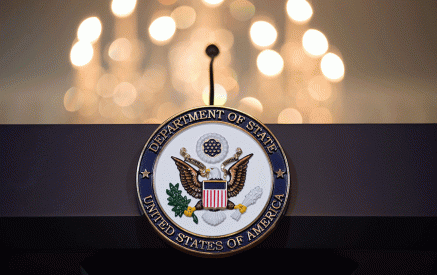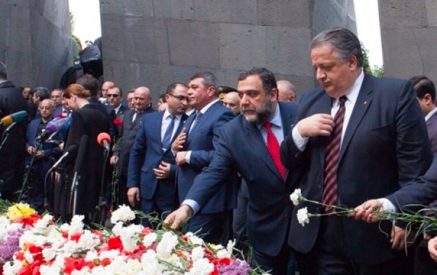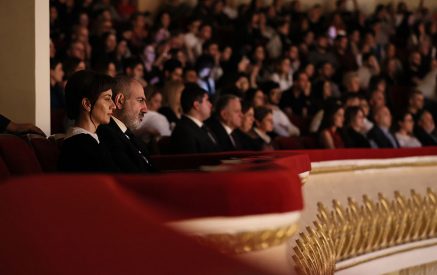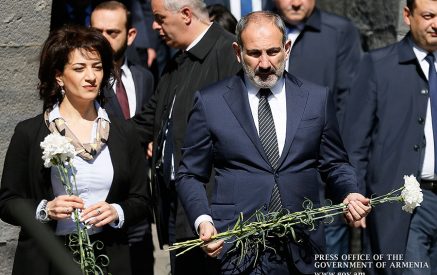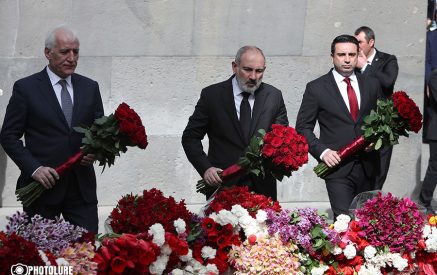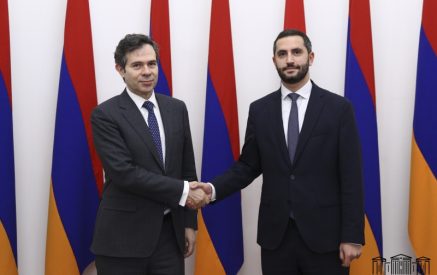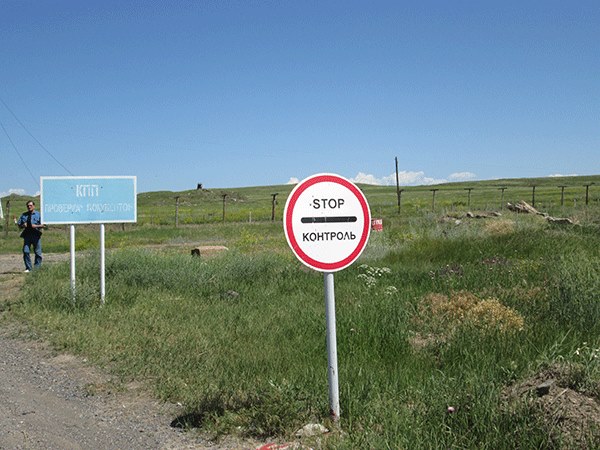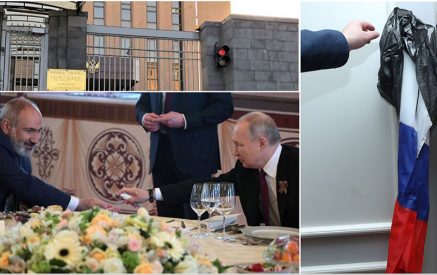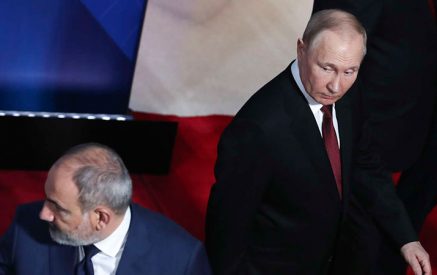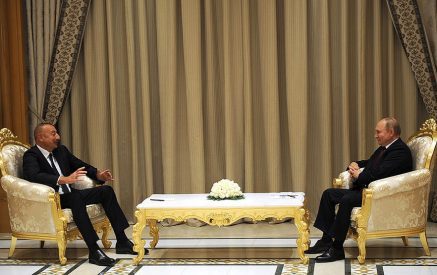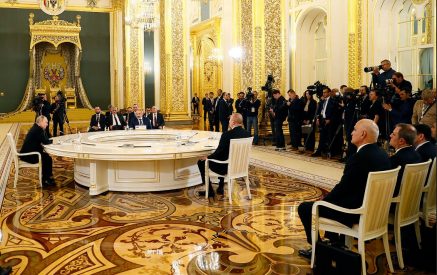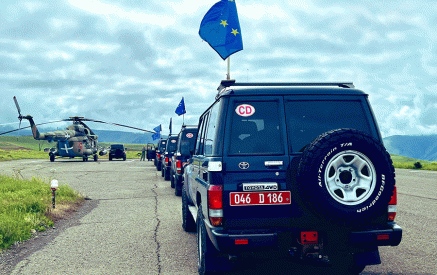Much time has elapsed since the so-called days of “football diplomacy”. The only closed border left after the cold war continues to remain impassible by known political reasons but life puts forward a number of questions. A lot has been changed since then in Armenia and Turkey and around them. There were many talks as to why the “football diplomacy” did not work, “at whose playground is the ball”, and there is no need for its recurrence.
However, Armenia and Turkey – two neighboring countries, in the course of the time, have established parallel, “horizontal” ties and deepen them in many spheres, which is natural, however, the interstate relations remain unregulated. Nobody is now surprised when Armenian and Turkish public and cultural figures visit the neighboring country, when we see Turkish trucks on the streets when Yerevan-Istanbul and Istanbul-Yerevan flights remain not only demanded but also become more frequent in recent years, in addition to bus passenger transportations. Nobody is now surprised when the subsequent monument of the Armenian cultural heritage is restored in Turkey, and Armenian specialists are involved in these works, and the subsequent group of citizens of Armenia visits this or that previously Armenian-populated town or village. And all this happens irrespective of what the government of Ankara declares and how official Yerevan reacts to it. The interstate relations between the neighbors, firs of all, is a matter of regulation and procedural, irrespective of the “degree of warmness” in these relationships.” This is in general. And when hundreds and thousands of citizens: Armenians and Turks, regularly visit the neighboring country, what to do if one of them, let’s say, gets sick, loses the passport, has a problem with the police, many other incidents happen to him, insurance matters.
This has nothing with political differences, nor, let’s say, with different approaches to the Nagorno-Karabakh conflict, nor with the fact of how Azerbaijan or Russia will treat it. This is the problem and the task of Armenia and Turkey, which is dictated by the demand of the time. The Armenia-Turkey relations are covered with political problems or a thick layer of “problems”, even several layers, which caused pain or noise when “touching”, or both. Hence, giving a solution to the problems requires moderate and cautious but also consistent and earmarked moves to keep pace with time. And this is the range of the question, which does not need any intermediaries. For the beginning, to facilitate the solution to some legal questions, the diplomatic representations of the third countries can take on this mission, for example, Switzerland, Georgia, Poland, countries that are not superpowers and are in normal relations with both Armenia and Turkey.
It is not difficult to conclude that the “regular regime” of constant dialogue on technical matters between the two countries can facilitate the discussion of other questions by the same “regular regime”, which are necessary and inevitable in the future and for the future. Indeed, numerous known political implications and contexts in the Armenian-Turkish interstate relations cannot vanish in one day or one year as a result of these discussions. Official Ankara’s position on this is known, the official Yerevan’s position is known too, as well as we know the attitude of official Baku and Moscow on all this, which inevitably leaves its negative impact.
This is important for Armenia as a state from the perspective of security of citizens and legal protection, and this is the dimension where regardless of political disagreements, Turkey’s interest seems to be the same. It has been spoken a lot that the Armenian-Turkish relations and Armenia-Turkey interstate relations should be separated. It is no secret that for the first case we a talking about reconciliation, which covers historical, political, cultural and legal standpoints, where by saying Armenian we must understand not only the citizens of Armenia but also ethnic Armenian citizens of Turkey, the Armenian Diaspora, which is largely a result of Genocide. This all layers and standpoints of the past, present and the future are not issues to be solved in one day, one year and even one generation.
Armenia-Turkey interstate relations are a difference case, which as noted above is an issue of regulations and procedural, devoid of emotions and aimed at the present and future, and demands constantly quiet and “regular regime” actions on practical dimension without excessive fuss or political dividends. Certainly, when talking about the interstate relations, it is difficult to circumvent the political standpoint. Everything around us is changing. Russia is weakening and isolating from the world waiting for new domestic upheavals, Iran is opened to the world, the prospects of Azerbaijan’s oil-power, the petrocracy, are becoming vaguer, Georgia’s Euro-Atlantic vector is irreversible, also in line with the NATO infrastructure assertive shift to the East and the expansion of the NATO’s presence in the Black Sea basin.
Armenia that overcame the four-day war in April needs a foreign policy diversification also in the regional arena. And it would be a political nearsightedness to consider the Turkish “topic” closed. Against the background of the failed attempt of the armed coup, the Syrian crisis, mounting internal challenges, the disagreements with the West and ambiguous relations with Russia, Turkey cannot nut continue its “zero problems with neighbors” policy. While, Armenia should prepare the “program-minimum” of its actions now by trying to make it a reality step by step. It is also the question of our national security, isn’t it? While, for example, Greece-Turkey and Bulgaria-Turkey relations show that the matter is not about unrealistic things. The shortest path is the longest, as it is used to say in Ancient China.
… A few years ago, one of the Turkish politicians of the second echelon, describing the Turkish policy in Yerevan said approximately the following: the world is playing chess in the politics, whereas Turkey is playing a backgammon, and you do not know what will be the next roll of the “dice” and what will be the move.
Ruben MEHRABYAN, “Aravot” Daily
































